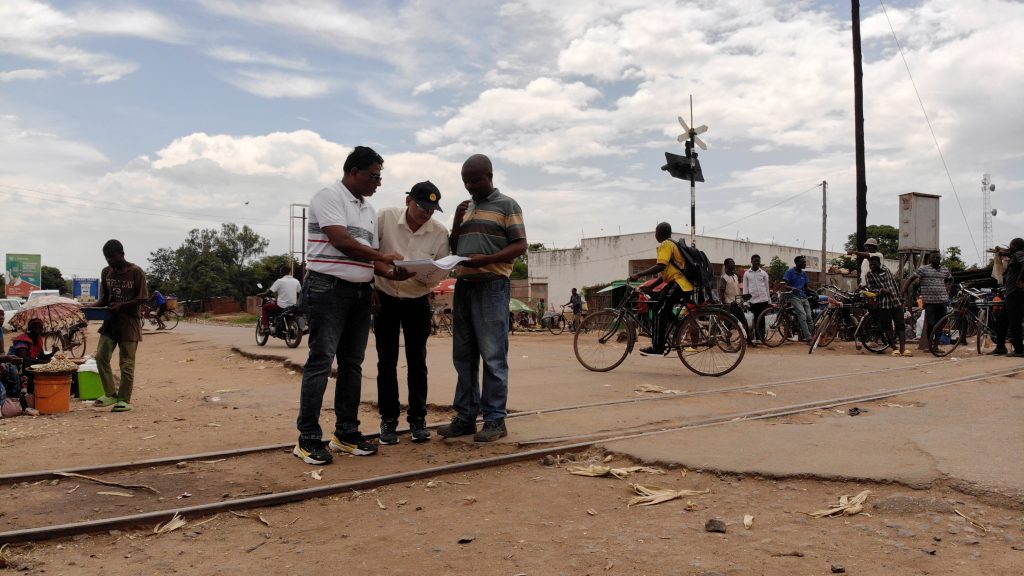- Rehabilitation of a 55 km road between Nsipe-Chingeni Liwonde in Malawi, which will significantly reduce the travel time from Nsipe to Liwonde to 50 mins from 1.5 hours
- Construction of a one-stop border post (OSBP) between Malawi and Mozambique at Chiponde, which will reduce the wait-time at Chiponde for cargo from 24 hours to 6 hours.
- Hiv aid sensitization meetings
Other constructions will involve: construction of a market and this market will be located at one of the densely populated areas along the road, to prevent people from selling their merchandise close to the road.
Under trade facilitation the project will:
- Construct, and install an information technology (IT) equipment and establishment of the OSBP between Malawi and Mozambique at Chiponde. The OSBP will be constructed under the Multinational Nacala Road Corridor Development Project Phase III, which is currently on-going in Mozambique.
- (ii) Weigh bridge, which will assist in preventing overloading by trucks entering the border at Chiponde.
BENEFITS
The Nacala Road Corridor is not only the shortest route to the seaport for Malawi, northern Mozambique and Zambia but also that its catchment area extends from Lusaka in Zambia, through Malawi, and northern Mozambique to Nacala Port. The beneficiaries include an estimated population of over 2 million people who use the Nacala Road Corridor for personal travel and economic activities. Other beneficiaries include import and export firms in Malawi, Zambia, and northern Mozambique who trade in all kinds of good and services; as well as tourists who use the corridor to reach desired sites in the three countries. Additionally, the Nacala Road Corridor will be an important alternative route to the seaport for Malawi and Zambia while the transport infrastructure along the Beira Corridor that was damaged during Cyclone Idai is being repaired.
In recognition of the economic importance of the Nacala Road Corridor, Malawi, Mozambique, and Zambia signed a tri-partite agreement in 2001 to establish a spatial development initiative zone along the corridor. The initiative involves commitment from the three countries to develop transport infrastructure along the corridor to serve as a backbone around which other economic sectors can grow, attract investments, create jobs, and improve the livelihood of their people.
The Project is in line with several agreements and some of them include:
Local agreements: The GoM recognizes transport as a key element, in the realization of Malawi Growth and Development Strategy (2017–2022) goals, which include a commitment to unlocking private sector potential, attracting investment, and creating jobs. The government has therefore prioritized investment in transport, among other economic infrastructure, as a means of supporting other productive sectors – namely agriculture, manufacturing, mining, and tourism – to create wealth and improve the lives of the people of Malawi.
International agreements: This Project is also part of the Trans-African Highway system and is one of the priority and core corridors in Southern Africa identified under the Programme for Infrastructure Development in Africa, which is managed by the New Partnership for Africa’s Development (NEPAD). Once developed, the Nacala Road Corridor will contribute to the Southern African Development Community (SADC). The Corridor is also in line with the SADC strategy to develop international corridors to enable regional economic integration and trade competitiveness.

